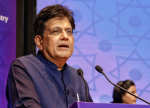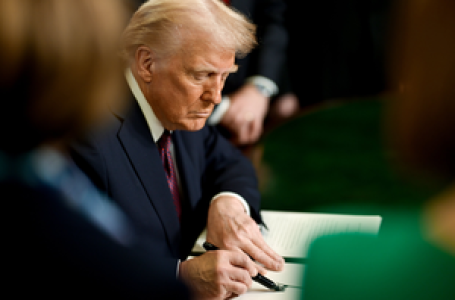
New Delhi: Gross non-performing assets (NPAs) of public sector banks have been steadily declining and have come down from 9.11 per cent of total loans in March 2021 to 2.58 per cent in March 2025, Minister of State in the Ministry of Finance Pankaj Chaudhary informed Parliament on Tuesday.
The total amount locked up in the gross NPAs of public sector banks has declined from Rs 6,16,616 crore in March 2021 to Rs 2,83,650 crore in March 2025, the minister said in a written reply to a question in the Rajya Sabha.
Comprehensive measures have been taken by the Government and the Reserve Bank of India (RBI) to recover and reduce NPAs. These include a change in credit culture that has come into effect, with the Insolvency and Bankruptcy Code (IBC) fundamentally changing the creditor-borrower relationship, taking away control of the defaulting company from promoters/owners, and debarring wilful defaulters from the resolution process. To make the process more stringent, personal guarantors to corporate debtors have also been brought under the ambit of IBC, the minister said.
The Securitisation and Reconstruction of Financial Assets and Enforcement of Security Interest Act, 2002 and the Recovery of Debt and Bankruptcy Act have been amended to make them more effective in recovering bad loans.
Besides, pecuniary jurisdiction of Debt Recovery Tribunals (DRTs) was increased from Rs. 10 lakhs to Rs. 20 lakhs to enable the DRTs to focus on high-value cases, resulting in higher recovery for the banks and financial institutions, he further stated.
Public sector banks have also set up specialised stressed assets management verticals and branches for effective monitoring and focused follow-up of NPA accounts, which facilitates quicker and improved resolution/ recoveries.
Deployment of Business correspondents and adoption of the feet-on-street model have also boosted the recovery trajectory of NPAs in banks, the minister said.
He also pointed out that the prudential framework for the resolution of stressed assets was issued by RBI to provide a framework for early recognition, reporting and time-bound resolution of stressed assets, with a built-in incentive to lenders for early adoption of a resolution plan, which has helped in the recovery of bad loans.
As per RBI guidelines, banks have a board-approved policy in place for the valuation of properties done by professionally qualified independent valuers. RBI mandates banks to have a procedure for empanelment of professional valuers based on prescribed minimum qualifications and maintain a register of an approved list of valuers.
Valuation of fixed assets is done before sanction of loan to a borrower as part of the appraisal process and before sale to recover dues under the SARFAESI Act, 2002, the minister explained.
In order to maintain transparency, for properties valued at Rs 50 crore or above, banks obtain a minimum of two independent valuation reports. Upon enforcement of a security interest for an NPA account, the bank takes possession of the property and obtains a valuation from an approved valuer before disposing of it.
RBI, vide its guidelines on sale of stressed assets by banks, has stated the use of e-auction as a desirable mode in the sale of properties as it would attract a wide variety of borrowers and enable a better price discovery, he added.
IANS



















